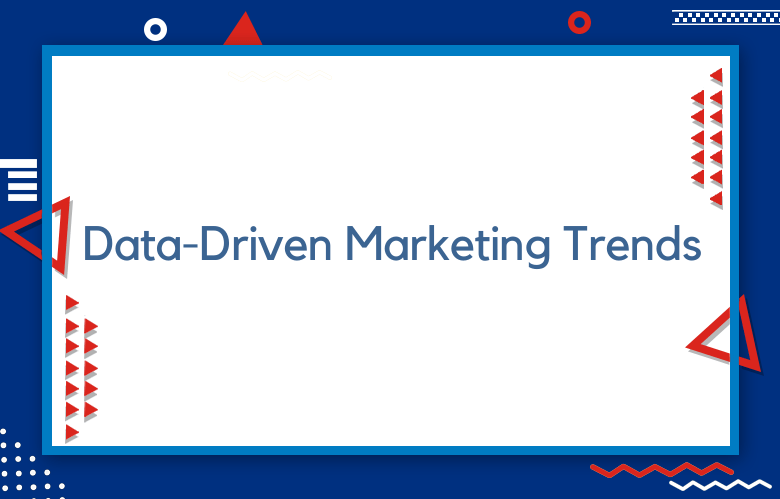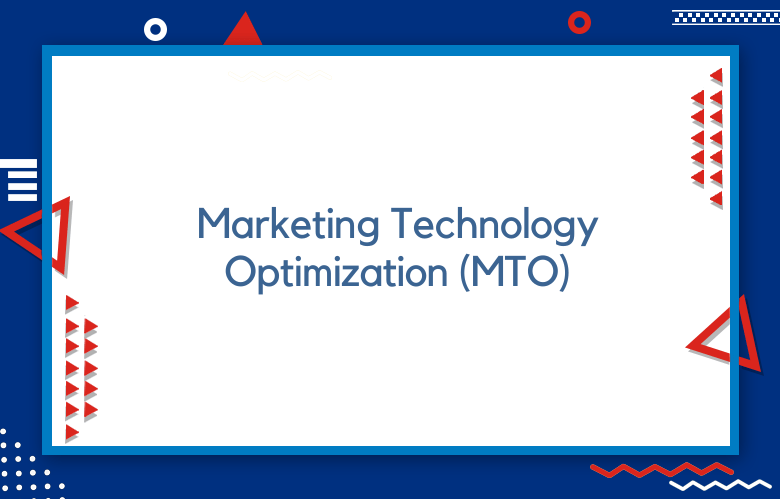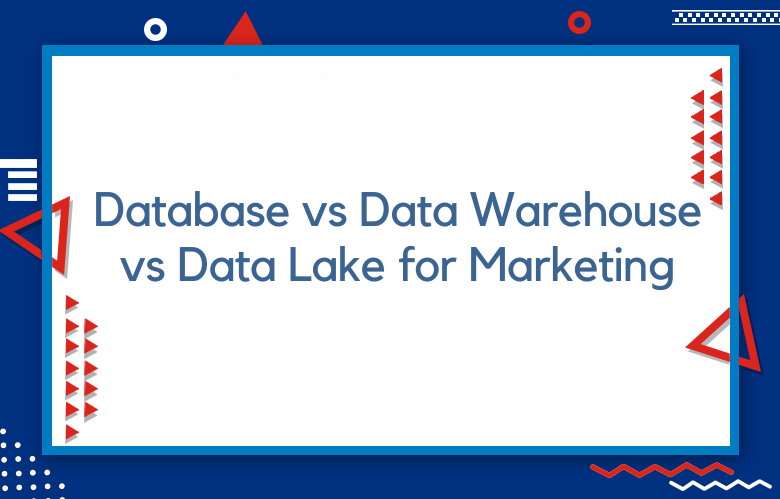Top Data-Driven Marketing Trends you need to Keep An Eye On

As we move into the 21st century, data-driven marketing is becoming increasingly crucial for businesses. You can create more relevant and effective campaigns by understanding and using customer data.
Data-driven marketing is becoming increasingly popular as businesses learn to use data to their advantage. However, with new technology and tools constantly emerging, it can be hard to keep up with all the latest trends.
Top Data-Driven Marketing Trends
Data will drive all marketing decisions. Marketers must take a data-driven approach to business processes and strategies to make better business decisions.
Businesses will connect directly and extend their marketing channels to track customers across more channels than ever, capture a more detailed view of consumer behavior, use more business applications, and synthesize richer and more timely consumer data.
Digital technology enables marketers to understand customers’ desires at an unprecedented level of granularity. While today, marketers can examine segments of customers and predict which customers are most likely to buy, in the future, marketers will be able to use technology to place any part of customers into a lens, understand their desires and needs better than they can understand their own needs and wishes, and then market more effectively to them.
Information analytics will be applied to advertising, especially digital advertising. The goal will be to improve marketing effectiveness and provide better experiences for customers.
You will plug into a global brain. Data will come from everywhere and connect to the value chain, which can be a source of sustainable competitive advantage. Consumers and business partners will be continuously connected via an integrated information network.
Companies will rely on insights more than on gut instinct. Data-driven marketing will be a critical differentiator between a successful and a less successful company in the years ahead.
Data will be the lifeblood of marketing, a key ingredient in reaching consumers precisely and creating a more productive marketing world for those who understand how to use it.
Data-driven marketing will allow a company to track each customer, analyze their spending and behavioral patterns, and use that data to tailor advertising and offers specifically for that customer.
Data will be collected from many touchpoints on and off the Internet. Understanding the data and its meaning will be imperative for making business decisions.
Organizations will continue collecting and analyzing vast amounts of Internet-accessible or “digital” data about users to predict their buying behavior despite concerns about its legality or potential for abuse.
Marketers will depend more on their rich troves of data, integrated with intelligent systems that can analyze that data and distribute it for consumption by consumers. However, marketers will also enrich the information for customers to consume.
Marketing will harness data and intelligence technologies, including machine learning, artificial intelligence, and traditional analytics, to personalize the consumer experience. That data-driven marketing will become integral to a consumer’s brand experience.
Brands will leverage their new-found ability to capture consumer data and use it to target better and deliver their messaging. Today, companies use consumer data to create customized campaigns targeting people with specific needs, profiles, or consumer interests. In the future, predictive data mining used by technology companies will be used to locate consumer trends and predict consumer behavior so that companies can precisely target consumers with the right message.
Marketers will be able to collect data from various sources at even higher frequencies.
Companies will no longer acquire customers through mass marketing campaigns but instead tailor marketing to customer groups using big data collected about their customers’ behavior.
Data-driven marketing will arrive when the critical source for acquiring customers is digital, and it’s vital to design a personalized experience for consumers that meets their needs and directs them toward a purchase.
No marketing message will be sent without data being collected and analyzed, resulting in a more personalized, relevant, and compelling message for the recipient.
Data-driven marketing will use big data, such as geographic data, to target local areas better. Also, brands will blend in with social networks to meet people where they are. Interaction with consumers is the focus of future data-driven marketing.
Everything will be data-driven. Just as Henry Ford used mass-production techniques, machines, and standardized parts to turn automobile manufacturing into an industrial process, the concept of data-driven marketing will use advanced technologies, such as location-based technologies, data mining, and customer relationship management, to understand and personalize the public’s tastes and preferences. Practices that were once exclusively in molding consumer goods and manufacturing will now be applied to marketing goods, services, and experiences.
Advertisers will find new ways of using technology to gather audience data and improve the demographics and psychographics of their target audience.
Consumers will be the marketing center, and the world will be data-driven. There will likely be thousands of complex ongoing interactions between consumers and the environment, and data will be captured for every interaction. The overall thinking is that these interactions will be managed to achieve optimal marketing results, with machines analyzing and integrating large volumes of disparate data into single, valuable, integrated pictures. In this online world, marketing firms will know more about consumers and their preferences than consumers will learn about themselves. To capture this market and apply this technique, companies must develop intelligent decision-making systems that can perform large-scale data analysis in real-time and make decisions in response to that analysis.
Data-driven marketing will become the business driver that underpins all marketing innovations and have a much more significant impact on marketing than the invention of the Internet.
Consumers will have a unique and trackable ID attached to them from birth. As information becomes more readily available, companies can exercise greater control in creating targeted, personalized marketing messages for prospective customers.
An individual shopper’s characteristics will be parsed into distinct “data buckets” composed of store shopper card data, loyalty card or membership data, credit report data, tax and income data, demographics, psychographics, interest-based data, behavioral data, and web search data.
Data use will be most apparent in marketing campaigns. Cyberterrorists will be able to launch large-scale marketing campaigns that are virtually undetectable and impossible to stop.
Marketing will be even more relevant and timely to consumers. At the time of need, a consumer will have several options that are close and comfortable—shopping, banking, and educational opportunities. All that is gained through data-driven, highly personalized marketing optimized through big data analytics.
Data-driven marketing will not be limited to selecting media and executing communication campaigns. Instead, marketers will optimize banner creation and placement, media budgets, place allocation, and delivery costs.
Companies expect to use more powerful computers to manage data-driven marketing. They also hope to customize data-driven marketing strategies with customer information and build personalized brand experiences (for example, websites, mobile apps, and advertising) for different customers.
The focus on television advertising will be on data-driven marketing, avails, and brand metrics. The industry’s primary objective and medium will be lean, efficient, one-to-one marketing.
Data-driven marketing will focus on the customer and utilize big data to become customer-centric. The Intelligent Enterprise is run on the principle that if the company has the correct information about its customers, it can create a better experience and ultimately increase sales.
Traditional marketing methods will be replaced by “data-driven” marketing systems that rely on collecting, analyzing, and targeting audience/customer information.
Marketing will be less about attention and more about attitudinal alignment and persuasion. For example, imagine an interactive choose-your-own-adventure on the web that has you vicariously participating in an event. Companies will use such media to test public reactions to products, advertising, and other marketing efforts. As they currently use focus groups, marketing experts will use the results to adjust their campaigns.
Data-driven marketing may be driven by machines—not humans—from determining which messages and information to deliver to the actual messaging.
Brands will connect with consumers efficiently or be more thoughtful about how they advertise. Marketers need to be able to get “data-rich” about consumers and their connections with the brand, the company said.
Organizations will market products and services based on detailed data on individual customers. Tied to personal customer profiles are computer models, or “rules,” that help predict customers’ needs and plans for optimal pricing, response, and inventory. The study found that technology will allow businesses to target their products individually or even target groups of people with demographic characteristics similar to those of other known customers who have purchased an item.
Data will be applied to marketing in new and creative ways. For example, through advanced analytics, marketers can target consumers based on their preferences, allowing them to provide better and more relevant marketing messages. The result will be more personalized and interactive marketing.
Data-driven marketing will be based on understanding customers’ needs, which companies can know or guess precisely. With historical information, users can determine their future desires and expectations and request customized offerings from marketers. This will be similar to the capabilities of automated essay graders, except for human intervention when necessary.
Marketers’ decisions will be driven by the totality of their information, including a blend of performance-based and heuristic data. This information will come from both internal and external sources. Furthermore, it will be available in a real-time, non-volatile environment for instantaneous use in changing the marketing mix.
Customers expect companies to act on their data, better integrating their in-store personalization with the online world. Companies will be secretive with data the customer does not own, but they will be transparent in using customer data to provide better service. The whole marketing mix will be reconsidered based on the data-driven perspective.
The key to data-driven marketing is to empower business professionals with big data analytics tools to help them make data-driven decisions that will help them improve their businesses.
Conclusion
As you can see, there are many data-driven marketing trends to watch out for in the coming year. If you want to stay ahead of your competitors and ensure that your marketing campaigns are effective, it’s essential to incorporate as many of these trends as possible into your strategy.
Contact us today if you want tips started with data-driven marketing or would like more information on any trends we discussed here.
Call: +91 9848321284
Email: [email protected]



